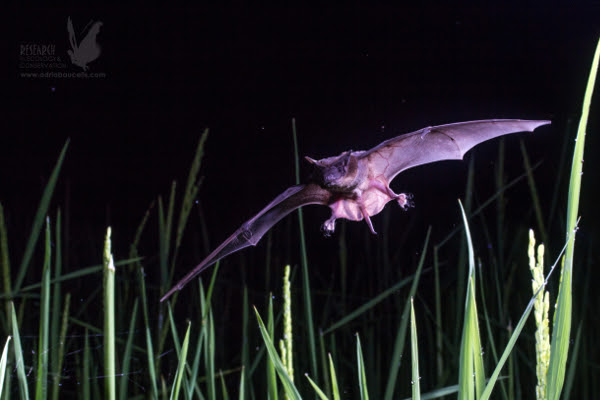A new study led by researchers at the Center for Ecology, Evolution and Environmental Change (Faculty of Sciences, University of Lisbon) demonstrates that several species of bats are providing a vital pest control service to Madagascar's rice growers as they feast on with the pests of insects harmful to agriculture in this country.
It is the first evidence of pest control by bats in Madagascar and, according to the researchers, it will alleviate the current financial pressure on farmers to convert forests into agricultural land.
Madagascar is one of the countries in the world where the relationship between agriculture and conservation is most tense. Madagascar's forests are being converted to agricultural land at a rate of 1% per year, and much of this destruction is driven by the cultivation of rice, the country's main agricultural crop.
This is in part because insect pests are destroying large amounts of this grain, prompting subsistence farmers to destroy even more forests to create new rice paddies, causing a devastating loss of habitat and biodiversity on the island. But not all species are being harmed – bats are important insect predators, and indeed some species of insectivorous bats are thriving on the island, with important implications for farmers and conservation biologists.
“We found that some species are taking advantage of habitat modification to hunt the insects that crowd the country's rice fields. Several of these species are insectivorous birds and bats that, through the suppression of agricultural pests, can provide a valuable service to local populations”, explains Adrià López-Baucells, co-author of this article, PhD student at the Center for Ecology, Evolution and Change Environmental (cE3c) of the Faculty of Sciences of the University of Lisbon (FCUL).
For this study, published in the scientific journal Agriculture, Ecosystems and Environment (https://doi.org/10.1016/j.agee.2018.09.027), the researchers used state-of-the-art ultrasonic recorders and molecular techniques to analyze the feeding of insectivorous bats across Madagascar's agricultural landscapes, and recorded the ultrasound produced by bats to locate their prey.
The researchers then applied genetic analysis to analyze fecal samples from bats of various species caught in rice paddies and nearby forests.
The results showed that the six species of bats analyzed feed on insect pests with great economic impact: not only pests that affect rice plantations, but also other crops such as macadamia, sugarcane and citrus fruits.
“The effectiveness of bats in pest control has already been proven in the United States and Catalonia,” explains James Kemp, first author of the article and PhD student at cE3c-FCUL. “Our study is the first to demonstrate this result in Madagascar, where a lot is at stake for farmers and conservation biologists,” adds the researcher.
Bats account for about one-fifth of all mammal species in Madagascar, and there are thirty-six species of bat that can only be found on this island. This fact makes Madagascar one of the most important regions in the world for the conservation of this group of animals, which, however, have a bad reputation in the country: in addition to being seen as a nuisance, because they roost in buildings, they are also frequently associated to the spread of disease.
However, the local population may have one more reason to change their perception of this group of animals, as researchers have found evidence that bats in Madagascar not only feed on agricultural pests, but also on mosquitoes – vectors of malaria. , elephantiasis and other infectious diseases.
Author CE3c Communication Office – Center for Ecology, Evolution and Environmental Change
Science in the Regional Press – Ciência Viva



















Comments